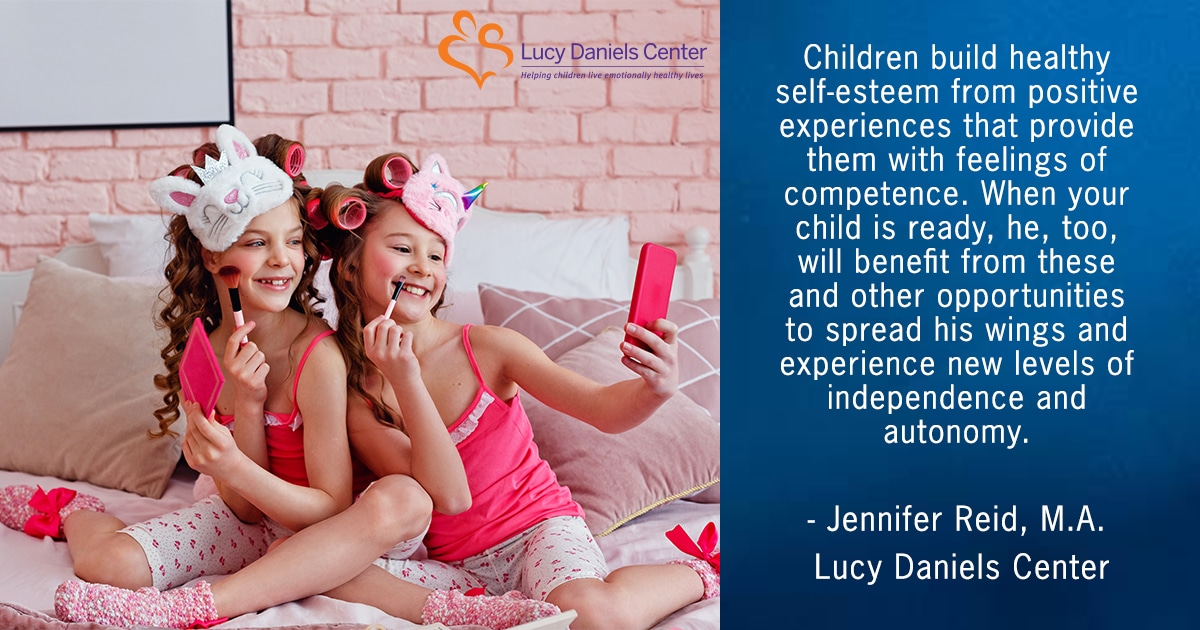Mental Health Mondays
Preparing Your Child for a First Sleepover
Many parents wonder when their child is ready for their first sleepover. Some children begin to ask for a sleepover with a good friend at a young age, while others prefer to stay in the comforts of their own home at night until they are older and more confident on their own. Then, of course, there are those who fall somewhere in the middle and want both! While every child is unique, we can offer some guidelines to help you think about your child’s overall emotional readiness for a night away from home, taking into consideration your child’s comfort with being and functioning on his own (especially at nighttime) as well as your own comfort with the hosting child’s parent(s).
Nighttime – bedtime in particular – can be a revealing time of day when it comes to understanding your child’s emotional development. Some children may become especially clingy or even resistant to going to bed while others show their strivings to be independent by taking responsibility for their self-care tasks (e.g., brushing teeth and changing into pajamas) and willingly climbing into bed when they feel tired. Understanding your child’s need for your presence and support around this time of day can be helpful when making a decision about a night away from home.
Considerations on Your Child’s Behalf
- Does your child rely on certain bedtime routines with you (such as stories or a special tucking in routine)?
- Are there occasions at home when your child needs significant support when he or she goes to bed?
- Does your child ever awaken with anxiety or nightmares and require comfort from you?
- How well has your child adjusted to different beds and routines when your family travels or visits?
- How important is sameness and routine for your child?
- Does your child have special objects (such as a blanket or stuffed animal) that provide comfort and could be taken along?
- Does your child generally accept babysitters easily?
- Does he or she separate comfortably from you at school and for an afternoon play date?
- Are there any recent or upcoming challenges in your child’s life or in your family life that could be on his or her mind, affecting his or her overall capacities?
Considerations Regarding Those Who Will Be Caring for Your Child
- How well does your child know his or her friend’s parents and siblings?
- Do your child and his or her friend generally get along well together?
- Does your child feel at home in the physical space?
- Is your child comfortable with all members of the family?
- Will the friend’s parents be able to provide comforting support?
- Do you have enough of a relationship with the parents so that you can explain your child’s needs and preferences to them?
As you think about these questions with your child in mind, also consider how likely it is that your child will be able to successfully embark on an overnight adventure. True success entails that he or she not only make it through the night, but make it in a way that feels both comfortable and enjoyable. Do you feel mostly positive that it will go well, or is there enough uncertainty that causes you to wonder? Keep in mind that children build healthy self-esteem from positive experiences that provide them with feelings of competence. When your child is ready, he, too, will benefit from these and other opportunities to spread his wings and experience new levels of independence and autonomy.
Lucy Daniels School is an emotionally safe and supportive learning environment for children preschool-5th grade. Lucy Daniels School provides an alternative choice in our therapeutic school for children who struggle emotionally and academically in a mainstream school environment. At the Lucy Daniels School, each child’s education and therapeutic program is carefully tailored to his or her needs and strengths. Parents meet regularly with a parent guidance counselor. This collaborative approach helps children progress socially and academically to become successful and competent learners.

